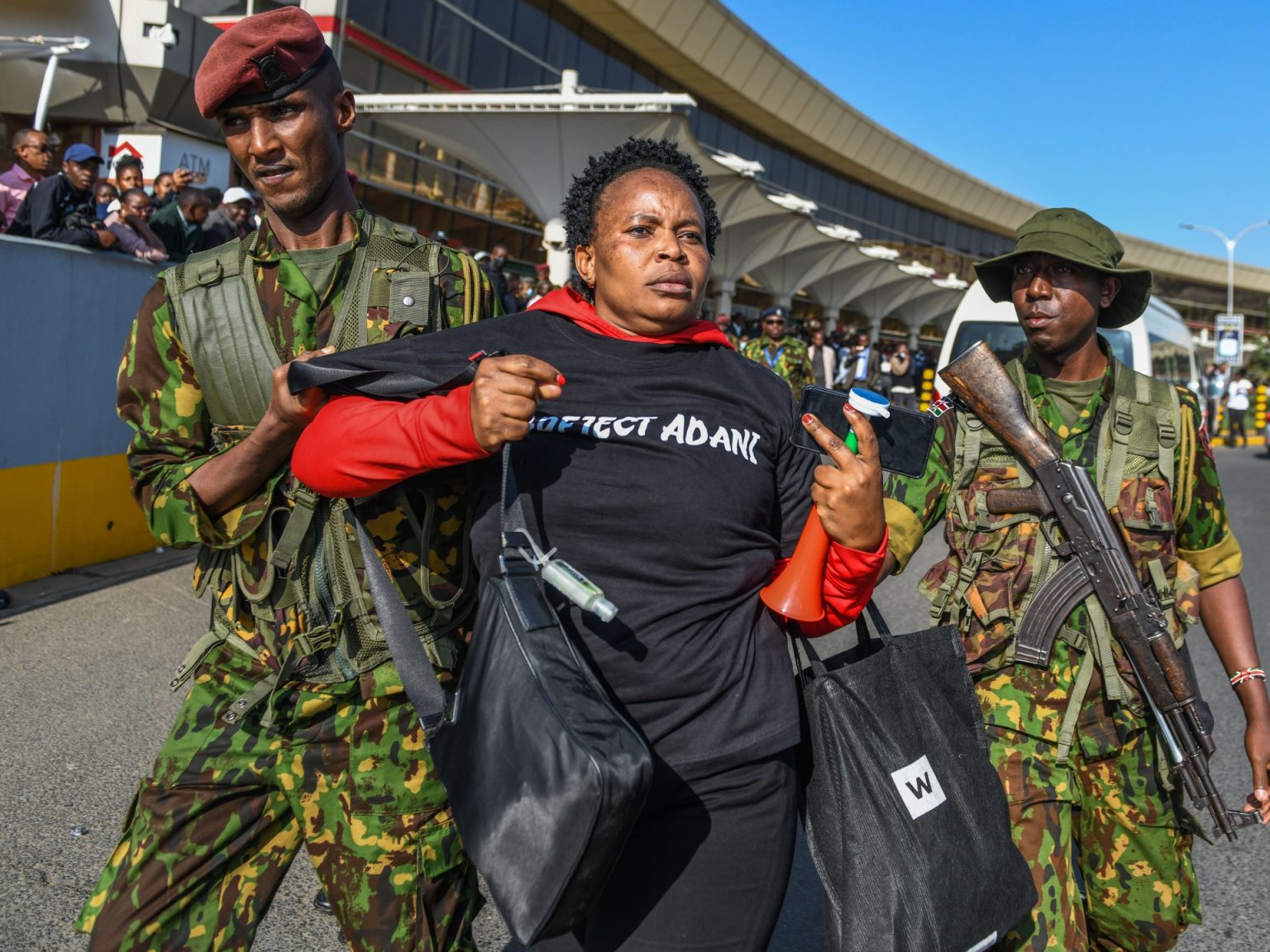Workers at Jomo Kenyatta International Airport, which is the largest airport in Kenya, recently went on strike in response to reports of a potential deal to lease the facility to India’s Adani Group. The strike resulted in disruptions to flights and left many passengers stranded without adequate information about the situation. The strike illustrates the concerns and opposition that some Kenyans feel towards foreign companies taking control of key infrastructure in their country.
The protest by airport workers highlights the broader issue of foreign investment and ownership in Kenya’s infrastructure sector. Many Kenyans are wary of foreign companies, such as the Adani Group, gaining control of key facilities like airports, as they fear that this could lead to exploitation, job losses, and a decrease in the quality of services. The strike at Jomo Kenyatta International Airport serves as a reflection of these concerns and signals the need for greater transparency and consultation with local stakeholders before entering into such agreements.
The disruption caused by the strike at Kenya’s largest airport also raises questions about the government’s handling of the situation. The lack of information provided to passengers left many stranded and confused, highlighting the need for better communication and contingency planning in the event of such labor actions. The government’s response to the strike will be closely scrutinized as it seeks to balance the interests of workers, passengers, and potential investors in the airport.
The strike at Jomo Kenyatta International Airport comes at a time when Kenya is increasingly looking to attract foreign investment to support its economic development. While foreign investment can bring much-needed capital and expertise, the government must also ensure that the interests of local workers and communities are protected in the process. The recent strike serves as a reminder of the importance of engaging with all stakeholders and addressing their concerns in order to build a more inclusive and sustainable economy.
The protest at the airport also highlights the power dynamics at play in the global economy, with large multinational corporations like the Adani Group being able to exert significant influence over governments and local communities. The strike by airport workers can be seen as a response to this imbalance of power, as they seek to assert their rights and protect their livelihoods from potential exploitation by foreign entities. The incident underscores the need for greater accountability and oversight in the process of foreign investment in developing countries like Kenya.
In conclusion, the strike at Jomo Kenyatta International Airport in Kenya reflects a broader debate about foreign investment and ownership of key infrastructure in the country. The protest by airport workers illustrates the concerns and opposition that some Kenyans feel towards foreign companies taking control of critical facilities, and highlights the need for greater transparency and consultation in such decisions. The government’s response to the strike will be crucial in determining how it balances the interests of workers, passengers, and potential investors in the airport, and will have implications for Kenya’s economic development and global partnerships moving forward.













